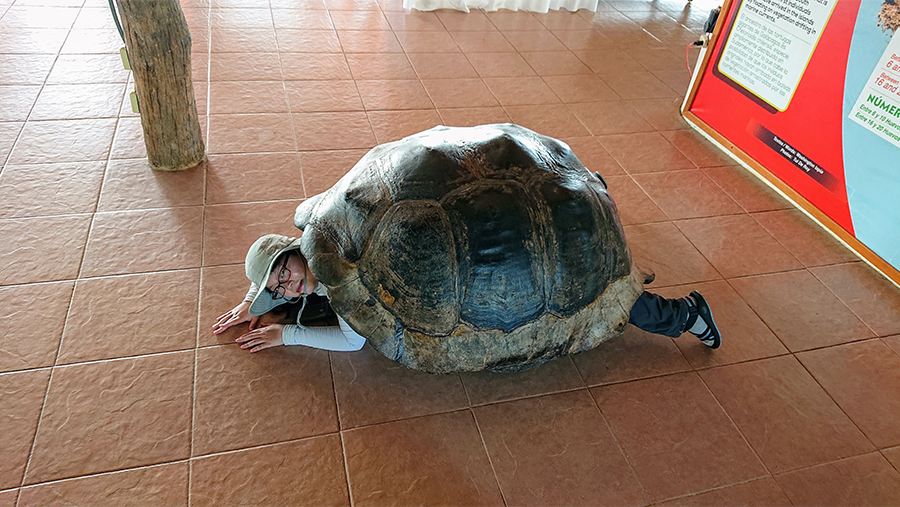Connecting state and local government leaders
Experts say more attention needs to be paid to people who are living for months with debilitating symptoms after contracting Covid-19, including many who aren't well enough to return to work.
Andréa Ceresa has been through three gastroenterologists already and now is moving onto her fourth.
She’s seen an infectious disease specialist, a hematologist, a cardiologist, an ear, nose and throat specialist, a physiatrist and an integrative doctor. She has an appointment coming up with a neuropsychologist and another one with a neurologist. She’s had an endoscopy, a colonoscopy, a CT scan, a brain MRI and so many blood tests, she said, “I feel like a human pin-cushion.” She was planning a trip soon to an acupuncturist and has a referral for occupational therapy.
Ceresa, a resident of Branchburg, New Jersey, relayed this medical litany on day 164 of her Covid-19 ordeal. So far, she said, nothing much has helped.
Before Covid-19, Ceresa was a healthy, active 46-year-old who managed a dental office by day and sang professionally by night, a woman who enjoyed yoga and jumped on a WaveRunner any chance she got. Now beset by a multitude of unshakeable symptoms, she said Covid-19 has transformed her into “a shell of what I was.”
All parts of her body are in rebellion. She has severe, persistent diarrhea, constant nausea, dizziness, paralyzing fatigue, piercing headaches, numbness in her limbs, blurry vision, ringing in her ears and a loss of hearing—an insurmountable deficit for a musician. She gets rashes on her face, finds light and sun painful on her eyes (a condition known as photophobia) and suddenly finds herself feeling uncomfortably cold for no reason. On top of all that is an alarming brain fog.
“At some point in this conversation,” she warned, “I might lose my train of thought or forget words.”
When this will end—if it will end—none of those doctors and specialists can tell her. Nor can anyone else, not at the federal Centers for Disease Control and Prevention, the National Institutes of Health, the World Health Organization or any other major health organization. As a result, Ceresa has no idea what life holds for her.
Advocates say it’s essential to begin grappling with these questions now as it becomes increasingly clear that for many, being ill with Covid-19 is not a transitory experience.
“As time goes on and our infection rate goes up, the fallout is that an extraordinarily large number of people who were previously healthy, working and engaged in the economy will now become shadows of their former selves,” said Diana Berrent, founder of Survivor Corps, a grassroots organization connecting those who have been infected with Covid-19. Berrent said it has 107,000 members.

(Photo by Chuck Capriola)
“People are aging decades in the course of months,” said Berrent, who is still experiencing symptoms months after her positive test. “People in their 20s are suffering heart attacks and strokes months after their moderate or even mild Covid experiences.”
More attention needs to be paid to those with persistent, serious Covid-19 symptoms, said Dr. Amesh Adalja, an infectious disease doctor and senior scholar at the Johns Hopkins University Center for Health Security.
“In this pandemic so far we’ve thought mainly about the metrics of deaths and hospitalizations, but now we must think about people with long-haul symptoms,” he said. “How will this affect society as a whole? What happens if people don’t go back to their former level of activities?”
For her part, Ceresa has no idea when or if she will be able to return to work. She lost her employer-sponsored health care and recently got on an Obamacare policy. But, with uncertainty hanging over the ACA, she worries how long she’ll have it.
“I have a plethora of preexisting conditions that I never had before,” she said.
Meanwhile, hardly a day goes by that she doesn’t have some kind of medical appointment, including some at Mount Sinai Hospital in New York, which opened what Berrent said is one of only two centers in the United States specifically focused on those with “long Covid-19.”
“I’m doing everything you can imagine to try to get better,” Ceresa said. “If someone says, ‘Try this,’ I’ll try. I’ll walk on coals. The list of referrals I have is off the charts.”
Uncertain Numbers
Exactly how many people fall into the category of long-haulers is uncertain, which is part of the problem, Berrent said. There is very little research yet on the experiences of people who suffer from persistent Covid-19 symptoms.
“Even if it’s a small percentage of people with long-haul symptoms,” Adalja said, “with more than seven million people infected overall that’s still going to be a big number.”
The CDC in late July reported that 35% of symptomatic adults who had tested positive for Covid-19 said they had not returned to their usual state of health two to three weeks after their tests. Among those ages 18-34, 1 in 5 hadn’t returned to their normal states of health. The survey did not include children.
There appears to be no data yet on numbers of people experiencing serious symptoms over longer periods of time or detailed information about their circumstances, such as age, gender, medical histories or course of their illnesses. Complicating the data collection is that many of them, even those with debilitating symptoms, were never hospitalized.
Some researchers are delving into the subject, including Natalie Lambert, a medical researcher at Indiana University School of Medicine, who has partnered with Berrent’s group to amass a far more extensive list of Covid-19-related symptoms reported by long-haulers than the 11 symptoms CDC identifies. Lambert’s survey lists 98. Respondents characterize more than a quarter of those symptoms as painful.
Because so little is still known about Covid-19, Lambert said doctors often dismiss patient concerns that their symptoms are virus-related.
“If a provider is updated, things move along and that patient has access to best care,” said Lambert. “But if the provider is not up to date or is skeptical that the symptoms are Covid-related, they might think that it’s just a case of reflux or anxiety. In those cases, patients are stuck.”
Kelly Ausiello, a 42-year-old registered nurse in Hendersonville, Nevada, has had a constellation of symptoms since April, including severe migraines, fatigue, nausea, vomiting and weakness. Ausiello has stopped going to doctors because none knew what to do for her.
“They keep saying they don’t know how to help me,” she said. “They just say, ‘I don’t know,’ ‘I don’t know,’ ‘I don’t know.’”
She had to suspend her studies to become a nurse practitioner, which she was on course to complete in December. She doesn’t know if her health will allow her to ever resume.
“My life is changing maybe forever,” she said.
A Preexisting Condition?
Long-term Covid-19 raises several policy issues. For people affected, none is more urgent than the threat of losing their health insurance.
The ACA, which passed in 2010, barred health insurers from denying coverage to people with serious or chronic health conditions prior to enrollment, adding significant surcharges to their premiums, curtailing their benefits or imposing extended waiting periods on them.
Such protections would vanish if the Supreme Court invalidates the ACA, as the Trump administration and Republican governors or attorney generals in 20 states are urging it to do. The court is scheduled to hear arguments in the case next month, possibly with a new, decisive, Trump-nominated justice on the bench.
A 2017 federal study found that up to 133 million Americans under age 65 had preexisting conditions. Covid-19 could add substantial numbers of people to that total.
Without the ACA’s protections, people who had a positive test for Covid-19 could be denied coverage. More than 7.5 million cases have been reported in the United States. Because the virus has been linked to damage to the heart, lungs and brain, a positive COVID-19 test could be used to argue that a patient had had a preexisting condition—Covid-19—to refuse claims to a patient who later developed a disease related to one of those organs.
But even those with negative tests could get caught in the same net, according to a paper published late last month by the Kaiser Family Foundation. The paper notes, for example, that rideshare drivers who get tested because they worry they have been exposed could be refused coverage if an insurer determines that those seeking tests have higher odds of infection.
“If ACA protections are invalidated, such people might be turned down, charged more, or offered a policy that temporarily or permanently excludes coverage for Covid-19,” the paper said.
Karen Pollitz, one of the authors, described insurers as ruthless when it came to medical underwriting in the days before the ACA.
“The individual health insurance market pre-ACA was a competitive market,” she said. “It did not pay for one insurer to be more generous than another. It was a race to the bottom.”
Without explaining how they would do it without the ACA, President Donald Trump and some congressional Republicans have promised they would continue to protect those with preexisting conditions.
At least 17 states have adopted laws preserving preexisting condition protections should the ACA be overturned, but the effectiveness of those laws is questionable.
The ACA also helps stabilize health insurance premiums through federal tax credits it provides to low-income policyholders. Those dollars would be eliminated without the ACA, probably putting health insurance out of reach for many Americans — particularly those facing high surcharges for preexisting conditions.
Even if some states tried to preserve the protections within their borders, insurers could simply refuse to offer coverage to residents of those states.
The elimination of the ACA also might scrap the Medicaid expansion that was part of the law. That alone could deprive more than 12 million low-income, adult Americans, some of them no doubt long-haulers, of health insurance coverage.
The dearth of testing, especially early in the pandemic, could become a problem for long-haulers if Congress eventually creates a fund to help pay for COVID-19 treatment, as it eventually did for first responders affected by their work at Ground Zero after 9/11.
‘People in a Pickle’
“People are going to need to prove they had Covid, but how do you do that when tests weren’t available or were faulty?” said Berrent. “That’s going to put people in a pickle.”
Without firm, black-and-white results, patients with lingering symptoms could find it impossible to make their case that their illnesses were coronavirus-related.
“There may come a period in which people are going to have to prove that Covid is the reason for their heart issue or lung disease and not just that they’re getting older,” said Nathan Boucher, an assistant research professor at Duke University’s Sanford School of Public Policy.
Berrent said many of those in her group complain of doctors not believing them. “People are being gaslit by doctors,” she said. “And it’s more women than men. I call it a modern-day version of what they used to call female hysteria.”
Joy Wu, a 37-year-old engineer in the San Francisco Bay area, has had firsthand experience with that medical skepticism. She contracted what she believes was Covid-19 after returning in March from a vacation on the Galapagos Islands.
She experienced dizziness, nausea, fatigue, back pain, confusion, excruciating headaches and such weakness that she has repeatedly fallen. Sometimes her heart races so fast, she said, “It feels like it’s going to explode.” She has episodes of tingling in her limbs and brain fog.
Because she didn’t have the respiratory symptoms most often associated with COVID-19, she didn’t have a diagnostic test until day 43, too late to know if she was infected, as she thinks she was, weeks earlier. She tested negative.

She said an ER doctor diagnosed her with Covid-19, although three medical doctors have attributed her symptoms to anxiety. But Wu said that both a psychiatrist and a psychologist who examined her told her that mental illness doesn’t explain her symptoms. It was through a Covid-19 support Facebook group that she found others with similar symptoms.
Apart from ensuring that long haulers can get health insurance, Berrent believes policymakers need to ensure that Covid-19 patients will not be barred from receiving disability benefits. Many, such as Ceresa and Wu, will not return to the workforce anytime soon.
“Disability wasn’t meant for people when they’re 30 or 40, but that’s what we are going to be facing,” she said.
Beyond finding a way to pay for Covid-19 treatment, Berrent said, the federal government should invest heavily in understanding the medical experience of long-haulers with an eye toward developing effective treatments. She wants to see more post-Covid-19 centers established for research and treatment.
“We need a warp speed race for a therapeutic for people suffering from post-Covid-19 that parallels what we’re seeing for the development of a vaccine,” she said.
Michael Ollove covers health care for Stateline.

NEXT STORY: Why We Need to Pay Attention to Police Officers’ Mental Health



